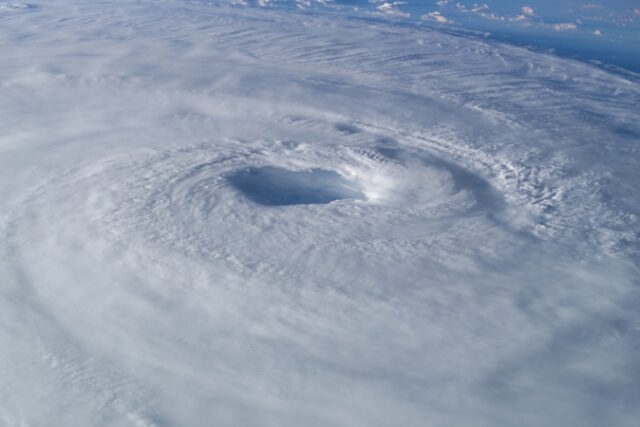
Located in the southeastern side of the US, Florida is a coastal state famous for its flat and diverse terrain, including massive, beautiful beaches, freshwater lakes, and swamps. It’s also home to the iconic Kennedy Space Center and Walt Disney World.
Due to its warm climate and coastal location, Florida is often susceptible to natural disasters and unpredictable weather. According to FEMA, Florida experienced a whopping 135 severe disasters between 1953 and 2019, including major hurricanes and fires.
If you live in Florida, you’ve probably experienced a natural disaster at some point in time. The bad thing about these natural disasters is that they usually happen quickly and unexpectedly, causing costly damage to homes and businesses alike. That’s why you should always have an emergency plan to prevent getting caught off-guard when a disaster hits.
If you suffer damage from a natural disaster, it’s always recommended to immediately seek advanced restoration services to help with restoration and repair. However, knowing what natural disasters are likely to occur in Florida can help you adequately prepare for them, so you can minimize the risk of damage to your property and keep your family safe.
Here are some of the most common natural disasters that occur in Florida:
Wildfires
Florida experiences over one thousand wildfires yearly, which can quickly spread over thousands of acres of land. Florida wildfires usually occur during spring and summer when the weather is hot. That’s because the hot weather causes vegetation to dry up quickly, making it easier for fires to start. Florida’s wildfires are often caused by natural causes, such as lightning, and human causes, like debris burning and unmonitored campfires.
Florida’s most devastating wildfire season occurred in 1998, with approximately 2200 wildfires in about two months. The fires were mostly attributed to dry lightning, arson, intense winds, and drought. If you live near wildland areas in Florida, you should always be prepared to evacuate your home and have emergency supplies pre-packed to sustain you when a wildfire occurs.
Tornadoes
Florida is also highly susceptible to tornadoes, especially due to its flat terrain. In fact, it’s one of the states in the US with the highest number of tornadoes each year, averaging 49 tornadoes annually. Like wildfires, tornadoes in Florida usually occur during the summer and spring months, but they can happen any other time as long as climatic conditions are favorable. The highest tornado frequency is usually between June and September, with intensities of EF0 or EF1 on the Fujita Scale.
Florida’s tornadoes usually form over ocean waters and on land, creating landfalling tropical cyclones that move along the land, destroying anything in their path. Hence, it’s crucial to learn the local tornado warning system and immediately take cover whenever you receive a warning. You should also learn the warning signs of a tornado and ensure you have an emergency plan in place, including evacuation plans. In case a tornado hits when you’re outside, take cover immediately in a sturdy building until it passes.
Tropical Storms and Hurricanes
Another natural disaster Florida is synonymous with is tropical storms and hurricanes. Florida’s hurricane season starts in June and goes on till November, with September being the peak month because of the atmospheric climate. The sunshine state is susceptible to hurricanes and tropical storms mostly due to its central location between the Strait of Florida, the Atlantic Ocean, and the Gulf of Mexico. The two most destructive hurricanes to ever hit Florida are 1992’s hurricane Andrew and 2018’s Hurricane Michael, both rated Category 5 hurricanes.
The state has also been hit by several other major hurricanes like Hurricane Irma and Hurricane Georges. The most hurricane-prone parts include the Florida Keys and Southeast Florida. Central Florida is the least affected by hurricanes, including Palatka, Sanford, and Orlando. When a hurricane strikes, find a safe place to seek shelter until the threat passes, and always stay away from the windows. If a hurricane causes flooding in your home, find the highest spot possible to seek shelter as you look for an exit route.
Floods
Apart from hurricanes and tropical storms, Florida is also highly prone to flooding because it’s usually surrounded by massive water bodies and lies at sea level. The fact that the state is susceptible to tropical storms, hurricanes, and severe storms also makes it more prone to severe flooding. Flood waters in Florida contaminate water supplies while also causing massive damage to roads, buildings, and homes. In 2012, for instance, the state experienced devastating floods and property damage due to Tropical Storm Debby, which resulted in up to 20 inches of rainfall in less than 48 hours.
Understanding your property’s risk level is the first step to preparing for a flood disaster. Proper preparation isn’t only recommended for those who live in flood-prone areas, but also for people in low-risk zones since they also can get flooded too. Flash floods can happen almost immediately after heavy rainfall. It’s always important to have an evacuation plan, especially if heavy rainfall is forecasted. This will help you avoid risking your life or getting stranded on top of your roof, waiting to be rescued.
Make sure you also pre-pack all emergency essentials in a carry bag and take it with you while evacuating your home. Some essential items to pack include a few clothes, food supplies, water, blankets to keep you warm, and an emergency kit stocked with medications. This will ensure you have everything you need to sustain you and your family for several days while taking shelter in a safe place.
Florida’s unique geography makes for unprecedented natural disasters that cause costly property damage, bodily injuries and even loss of life. However, this doesn’t mean it’s a bad place to live with your family.
The only thing you need to enjoy all that Florida has to offer is always to be prepared for natural calamities that are likely to occur. That includes having an emergency plan in place for when a calamity strikes and staying on top of weather forecasts so that you can prepare before the disaster strikes.












